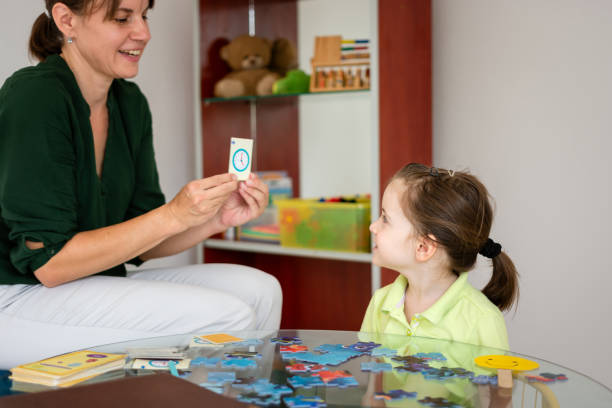Where Play Meets Progress
Interactive Therapy Activities for Children hold the key to unlocking a world of potential and growth in the little hearts and minds that shape our future. In a universe filled with screens and gadgets, these activities emerge as beacons of holistic development. Let’s delve into this transformative journey, exploring the magic of play and its profound impact on a child’s development.
The Power of Play: An Introduction
In a world where kids often use technology, Interactive therapy activities play an important role as heroes, providing not only joy but also valuable experiences. These activities are carefully designed and engaging, and aim to enhance various skills, from communication to motor skills. They create a positive impact on children’s development, offering a balance between digital and real-world experiences.
Unleashing Creativity Through Art
One of the most enchanting aspects of interactive therapy activities is the freedom they offer for artistic expression. Through painting, drawing, and crafting, children learn to communicate their emotions and ideas. The strokes of a paintbrush or the molding of clay become mediums for self-discovery, boosting confidence and creativity.
Emotional Intelligence: Nurturing Empathy and Understanding
Interactive therapy activities serve as a canvas for emotional exploration. One of the examples of interactive therapy activities is engaging in role-playing scenarios, where children step into various shoes, understanding different perspectives and emotions. This hands-on experience extends beyond just role-playing, helping kids understand different feelings and viewpoints. It teaches them important skills like empathy, kindness, and emotional smarts, which are crucial for developing caring individuals.
The Transformative Role of Interactive Play
Witnessing the impact of interactive therapy activities is nothing short of awe-inspiring. Meet Sarah, who was a bit shy at first but found her voice in storytelling sessions. The therapist, in these special sessions, showed Sarah different characters and stories that sparked her imagination, helping her open up more.
As Sarah started making up her own stories, something amazing happened. Every tale she told helped her express herself better, making her more confident with each word. The therapist, paying close attention to how Sarah was doing, added things to the stories that matched her feelings. This made the sessions a comfortable place for Sarah to share and talk about feelings she might not have shared before.
Enhancing Social Skills Through Playdates
Interactive playdates are special gatherings designed for children to engage in hands-on activities fostering learning and social development. These playdates go beyond typical play by incorporating age-appropriate games, arts, and crafts, and interactive storytelling. The activities aim to enhance cognitive and social skills, encouraging communication and teamwork. Incorporating toys like puzzles and building blocks adds an element of adventure to these playdates, making each one a unique journey of exploration, learning, and friendship for the children involved.
Sensory Adventures: A Journey of Discovery
Sensory activities play a crucial role in interactive therapy, providing children with valuable experiences. Through exploring various adventures such as textures, scents, and sounds, children refine their sensory perceptions. These adventures not only enhance cognitive development but also serve as a therapeutic escape, calming anxieties and sparking curiosity.
Conclusion
In the realm of childhood, where innocence meets curiosity, interactive therapy activities stand as guiding stars. They nurture not just intellect, but also the soul, fostering resilient, empathetic, and confident individuals. Every game played, every story told, and every creative endeavor undertaken shape the future, one child at a time.
WonderTree stands as a source of support and progress for children with diverse needs, offering a gamified platform that incorporates proven exercises and special education into engaging experiences. WonderTree is dedicated to providing clinically validated Augmented Reality (AR) games, thoughtfully designed to deliver tangible benefits. These games aim to enhance balance, and self-esteem, and provide practical guidance, leading to meaningful improvements in children with learning differences. Notably, WonderTree’s distinctive strength lies in its community-driven approach, fostering collaboration with educators, therapists, and parents to ensure that every aspect of the platform caters to the varied needs of children.
WonderTree believes every child should have a chance to learn and grow. They focus on making learning fun and accessible for all kids. Using interactive therapy in their platform, they created a place where children of all abilities can join in and enjoy learning. They also help parents, teachers, and therapists track a child’s progress. We work with institutions to provide special learning solutions for every child. Their goal is to make learning enjoyable and effective, changing children’s lives with fun and smart solutions. This is useful for parents who want to know more about interactive therapy for their kids..
FAQs:
Q: At what age should children start interactive therapy activities?
A: Ideally, children as young as three can benefit from interactive therapy activities, tailoring the activities to their developmental stage.
Q: Can these activities be practiced at home?
A: Absolutely! Many interactive therapy activities are designed for home use, fostering bonding and development within the family.
Q: How do these activities impact children with special needs?
A: Interactive therapy activities have a significant impact on children with special needs by offering tailored adaptations that create a supportive environment for their growth and learning. These activities address individual needs, promoting development across various skills, and fostering a positive and inclusive learning experience for children with diverse abilities.
Q: Are there online resources for interactive therapy activities?
A: Yes, numerous online platforms offer guidance and ideas for interactive therapy activities, making it accessible to parents and caregivers.
Q: What role do parents play in enhancing the benefits of these activities?
A: Parents play a crucial role in maximizing the benefits of interactive therapy activities. Actively participating alongside their children strengthens the parent-child bond and provides crucial emotional support. Observing and understanding their child’s reactions allows parents to communicate valuable insights to therapists, contributing to personalized interventions.



